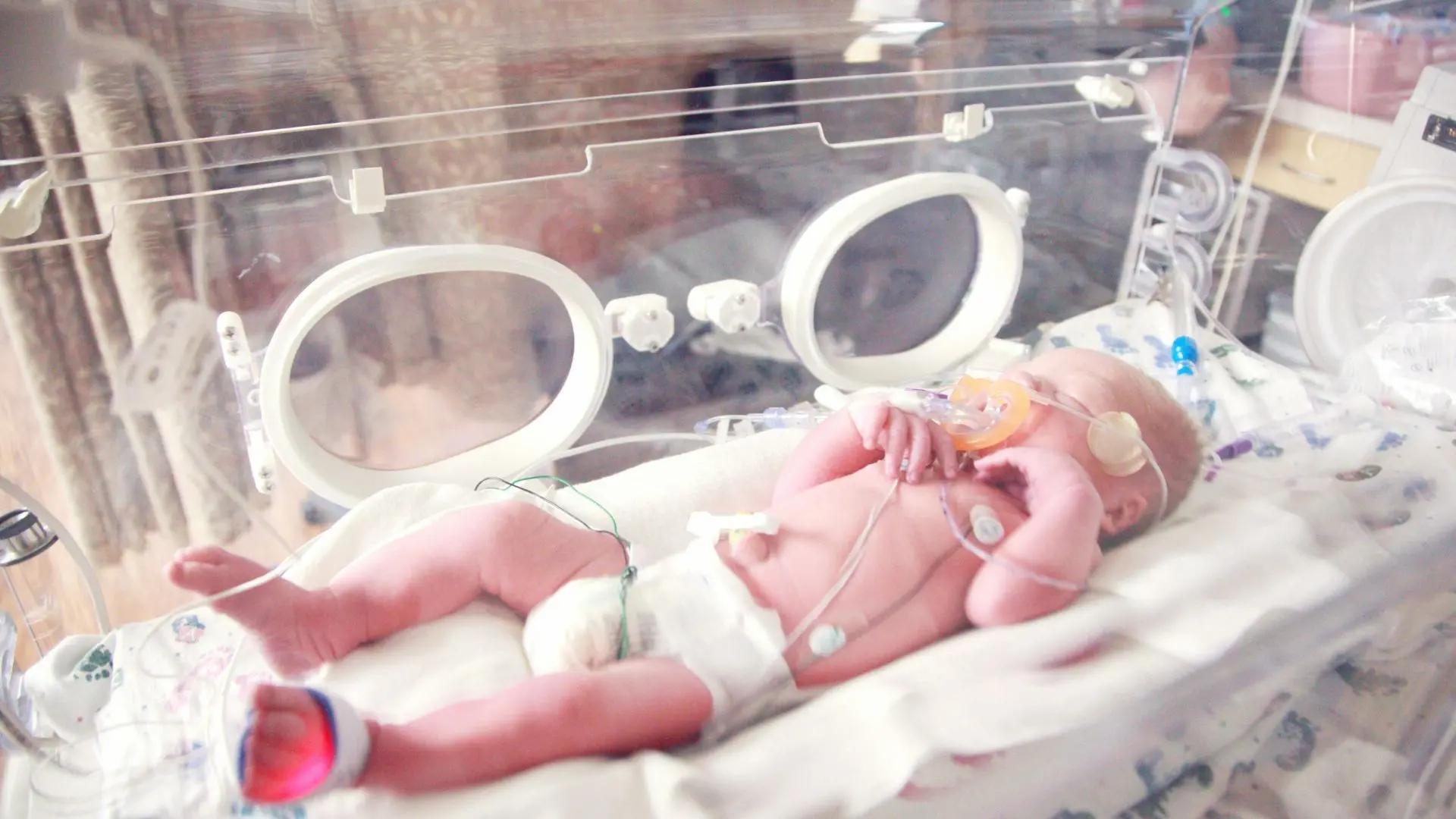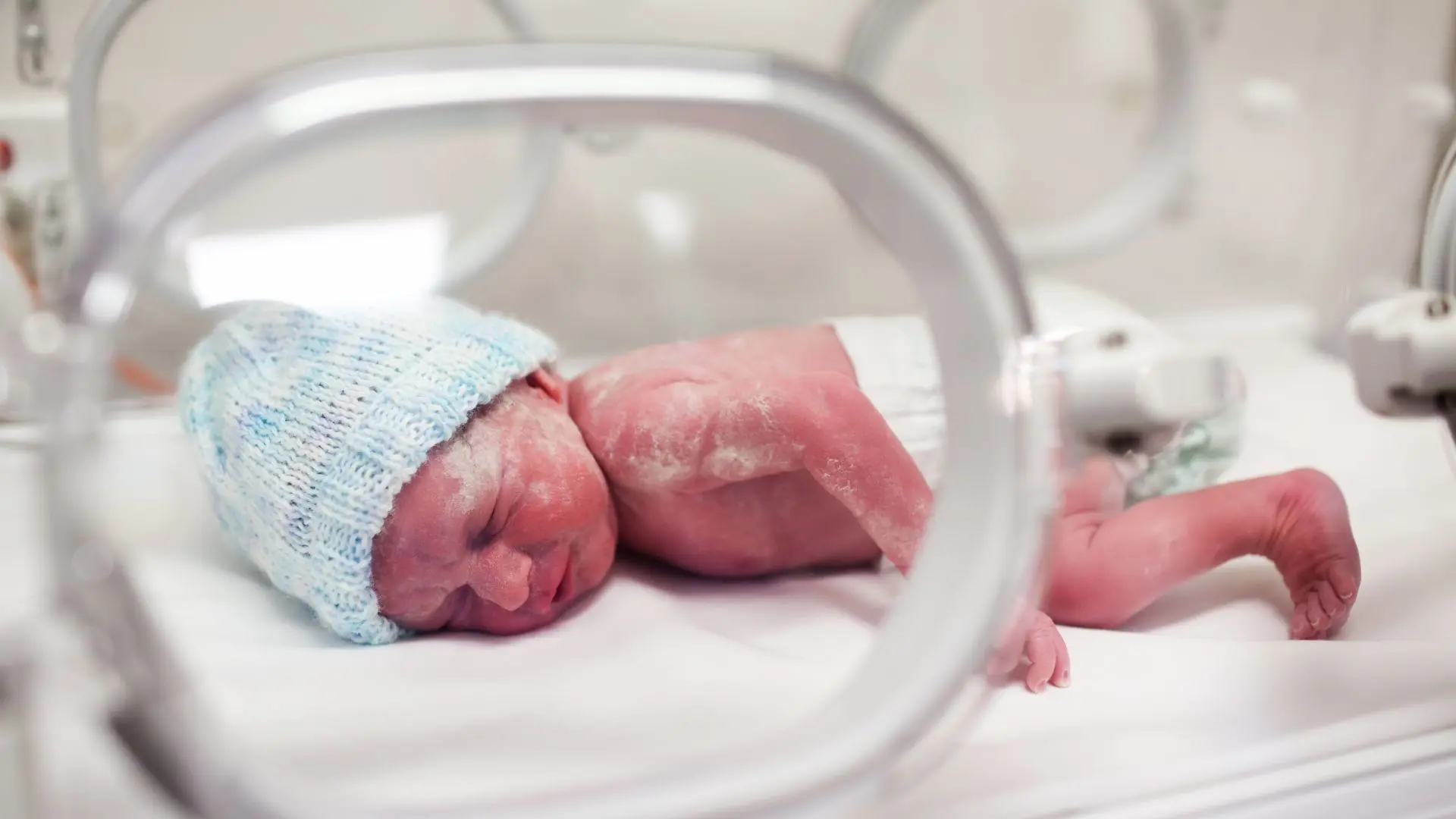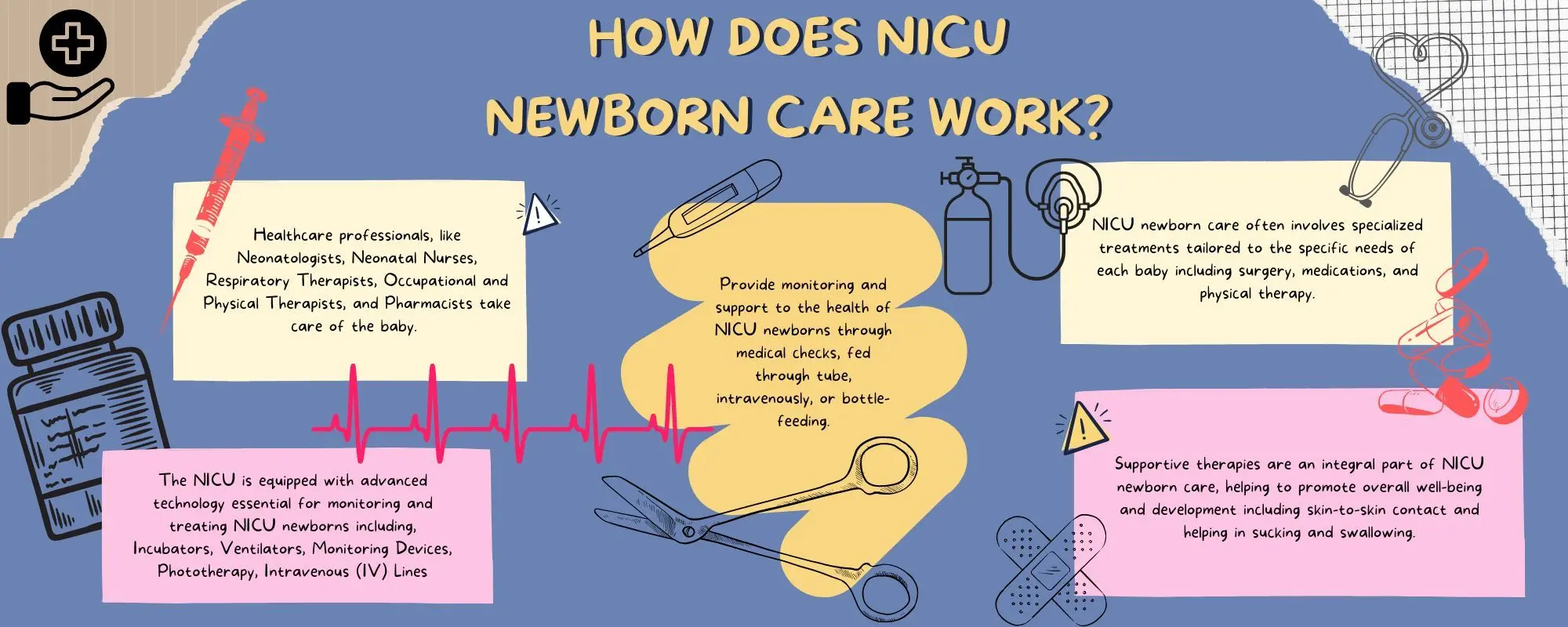Understand NICU Newborn care: why it’s needed and how it helps. Get expert advice and hear from parents who’ve experienced it.

NICU Newborn care is a critical component of healthcare for premature and sick infants. In the United States, about 10% of all babies are born preterm, which means that thousands of families annually experience the emotional and physical challenges associated with having a newborn in the Neonatal Intensive Care Unit (NICU) (CDC).
The journey can be daunting, filled with uncertainty and anxiety. Understanding why some babies require NICU care and how it benefits them can empower parents to navigate this challenging time with confidence and knowledge.
What is NICU Newborn Care?
Definition of NICU Newborn Care
NICU Newborn care refers to the specialized medical treatment provided to newborns who are premature, have low birth weight, or suffer from serious health conditions that require intensive medical attention.
The NICU is equipped with advanced technology and staffed by a highly skilled medical team to provide comprehensive care tailored to the needs of these vulnerable infants.
Types of Babies That Require NICU Newborn Care
Babies typically requiring NICU care include:
- Premature Infants: Babies who are born before 37 weeks of gestation.
- Low Birth Weight Infants: Babies weighing less than 5 pounds, 8 ounces at birth.
- Infants with Health Complications: Babies with congenital conditions, respiratory issues, infections, or other medical concerns that require specialized care.
Why Do Some Babies Require NICU Newborn Care?

Prematurity
Premature babies often need NICU Newborn care because their organs are not fully developed, which can lead to various health challenges. These infants may have underdeveloped lungs, making breathing difficult without medical assistance. NICU care provides the necessary support to help these babies grow stronger and develop outside the womb.
Health Complications
Newborns with health complications such as respiratory distress syndrome, jaundice, or congenital heart defects need the specialized care provided in the NICU. For instance, respiratory distress syndrome, common in preterm infants, requires interventions like mechanical ventilation to support breathing.
Low Birth Weight
Low birth weight infants often face difficulties regulating their body temperature, maintaining adequate nutrition, and fighting infections. NICU Newborn care includes interventions such as incubators to maintain optimal body temperature and intravenous feeding to ensure proper nutrition.
How Does NICU Newborn Care Work?

1. Medical Team
The NICU medical team is composed of a variety of healthcare professionals, each playing a crucial role in the care of NICU newborns:
- Neonatologists: Doctors specialized in the care of newborns, particularly those who are ill or premature.
- Neonatal Nurses: Nurses trained to care for newborns in the NICU, providing round-the-clock monitoring and care.
- Respiratory Therapists: Specialists who manage the breathing needs of NICU babies, including the operation of ventilators and other respiratory support equipment.
- Occupational and Physical Therapists: Professionals who support the development of motor skills and overall physical health.
- Pharmacists: Ensure that NICU newborns receive the correct medications and dosages.
These professionals work collaboratively to provide comprehensive and individualized care to each infant in the NICU.
2. Equipment and Technology
The NICU is equipped with advanced technology essential for monitoring and treating NICU newborns:
- Incubators: Provide a controlled environment to keep babies warm and reduce the risk of infections.
- Ventilators: Assist infants who are unable to breathe on their own.
- Monitoring Devices: Track vital signs such as heart rate, respiratory rate, and oxygen levels continuously.
- Phototherapy: Used to treat jaundice by helping break down excess bilirubin in the baby’s blood.
- Intravenous (IV) Lines: Deliver essential nutrients and medications directly into the bloodstream.
These tools are critical for addressing the complex needs of NICU newborns and ensuring they receive the best possible care.
3. Daily Routine
A typical day in the NICU involves a range of activities and procedures designed to monitor and support the health of NICU newborns:
- Medical Checks: Regular assessments by doctors and nurses to monitor the baby’s progress.
- Feeding and Nutrition: Babies may be fed through a tube, intravenously, or, when possible, by breastfeeding or bottle-feeding.
- Family Involvement: Parents are encouraged to participate in their baby’s care through activities like kangaroo care (skin-to-skin contact) and feeding.
These routines are designed to ensure that NICU newborns receive consistent and comprehensive care.
4. Specialized Treatments
NICU newborn care often involves specialized treatments tailored to the specific needs of each baby:
- Surgery: Some infants may require surgical interventions to correct congenital abnormalities or other health issues.
- Medications: NICU babies may need medications to treat infections, support heart function, or address other health concerns.
- Physical Therapy: Helps support the development of motor skills and overall physical health, ensuring that NICU newborns reach developmental milestones.
These treatments are critical for addressing the diverse and complex health needs of NICU newborns.
5. Supportive Therapies
Supportive therapies are an integral part of NICU newborn care, helping to promote overall well-being and development:
- Kangaroo Care: Skin-to-skin contact between parents and their baby, which has been shown to improve bonding, regulate the baby’s temperature, and promote breastfeeding.
- Occupational Therapy: Assists in developing essential skills such as sucking and swallowing, which are crucial for feeding.
These therapies not only support the physical health of NICU newborns but also enhance their emotional and developmental outcomes.
What Are the Benefits of NICU Newborn Care?

Specialized Care
NICU newborns receive highly specialized care tailored to their unique needs. This level of care includes:
- Continuous Monitoring: Vital signs are constantly monitored to detect and address any issues immediately.
- Targeted Interventions: Medical and surgical interventions are provided based on the specific health needs of each infant.
This specialized approach ensures that NICU newborns receive the most appropriate and effective care.
Monitoring and Support
Continuous monitoring and support are critical components of NICU newborn care:
- Vital Signs Monitoring: Ensures that any changes in the baby’s health status are detected early and addressed promptly.
- Support for Critical Health Issues: NICU staff are trained to manage and treat a wide range of health conditions, providing the necessary support to help infants recover and thrive.
This constant vigilance helps to ensure the best possible outcomes for NICU newborns.
Parental Support
The NICU experience can be challenging for parents, but support is available to help them navigate this difficult time:
- Emotional Support: Counseling and support groups are available to help parents cope with the emotional stress of having a baby in the NICU.
- Informational Support: Parents receive education and training on how to care for their baby, both in the NICU and after discharge.
This support helps parents feel more confident and empowered in their role as caregivers.
How do I prepare for NICU Newborn Care?
What to Expect
Understanding what to expect can help parents prepare for their NICU journey:
- Initial Assessments: Upon arrival, the medical team will conduct thorough assessments to determine the baby’s needs.
- Care Plan: A personalized care plan will be developed, outlining the treatments and interventions required.
Being informed about the process can help parents feel more prepared and less anxious.
Parental Involvement
Parents are encouraged to be actively involved in their baby’s care:
- Kangaroo Care: Skin-to-skin contact can help improve the baby’s health and strengthen the parent-child bond.
- Feeding: Parents can often participate in feeding, whether through breastfeeding, bottle-feeding, or assisting with tube feedings.
Active involvement helps parents feel more connected and contributes positively to the baby’s development.
Support Resources
Numerous resources are available to support parents of NICU newborns:
- Support Groups: Support groups for parents, providing a community of people who understand what they are going through.
- Educational Materials: Hospitals and online resources provide information on caring for a NICU newborn, helping parents learn and feel more confident.
These resources offer valuable support and information to help parents navigate their NICU journey.
Conclusion
The NICU journey can be overwhelming, but understanding what to expect and how to advocate for your baby’s care can make a significant difference. From practicing stringent hand hygiene to creating a calming environment, these strategies are crucial for your baby’s well-being.
Remember, your role as a parent is vital, and staying informed and proactive will help you provide the best care possible.
We’re eager to learn about your experiences and any valuable tips you have discovered along the way. Please share your thoughts and comments below. Your insights could be invaluable to other parents navigating the NICU journey.
You may also be interested in : What Not to Do in the Neonatal Intensive Care Unit (NICU) and Why?
Thanks for sharing. I read many of your blog posts, cool, your blog is very good.